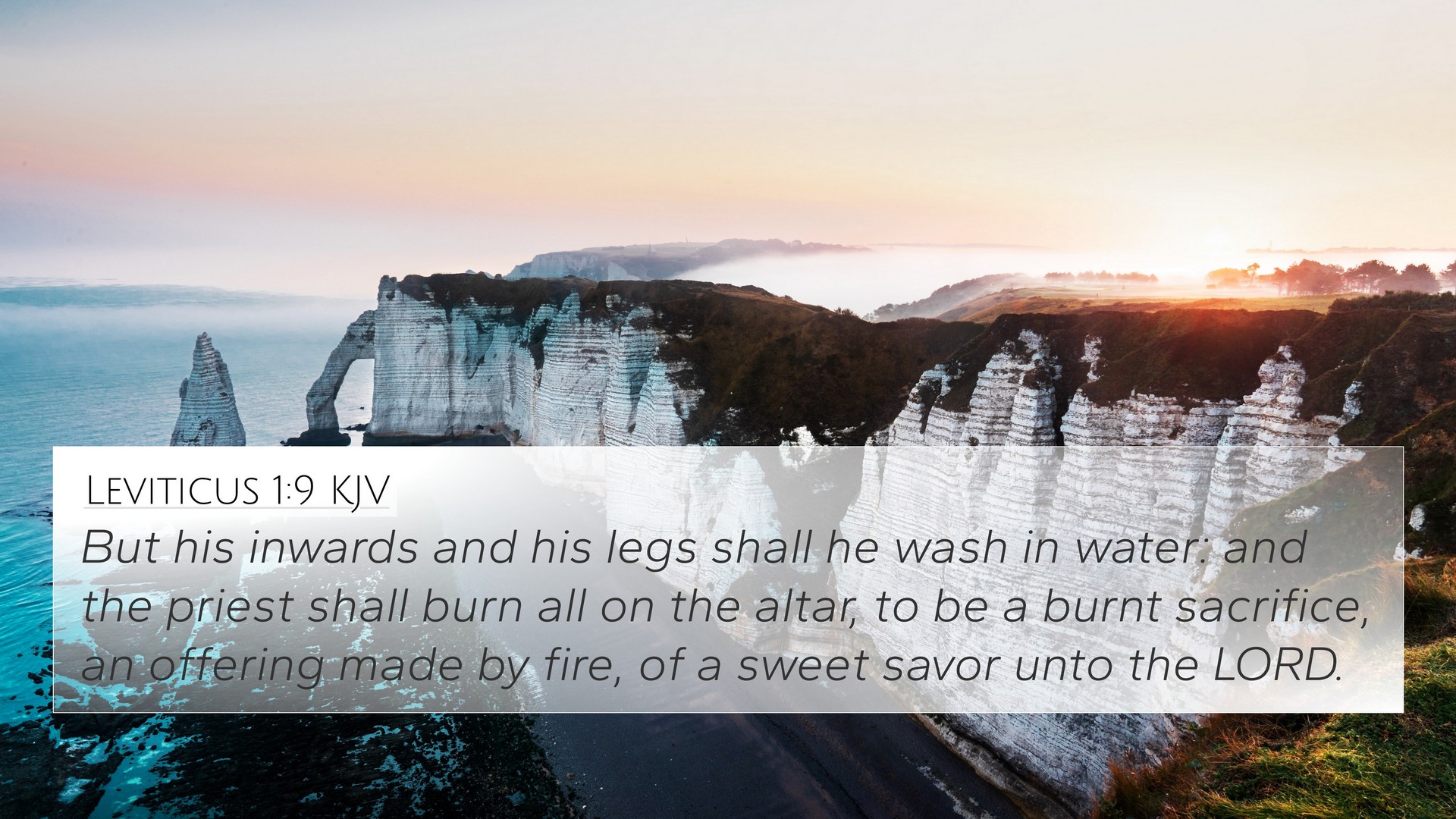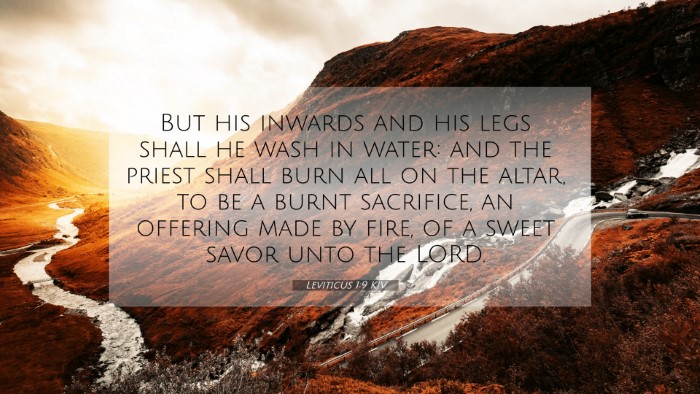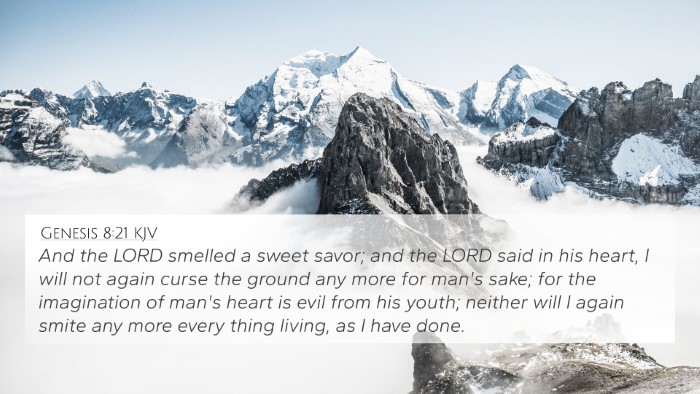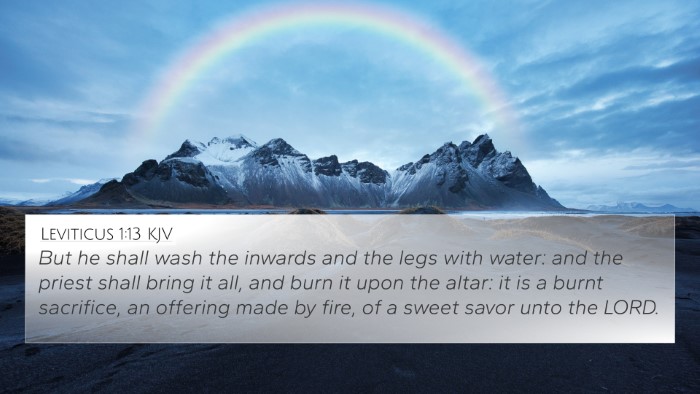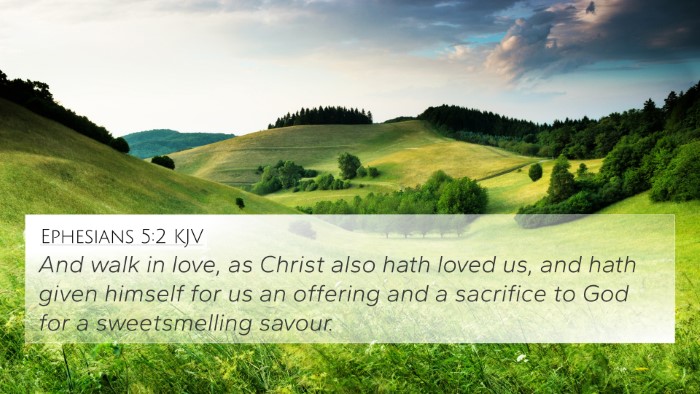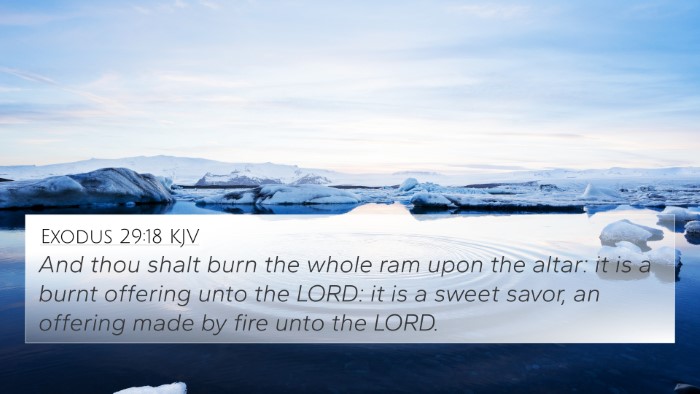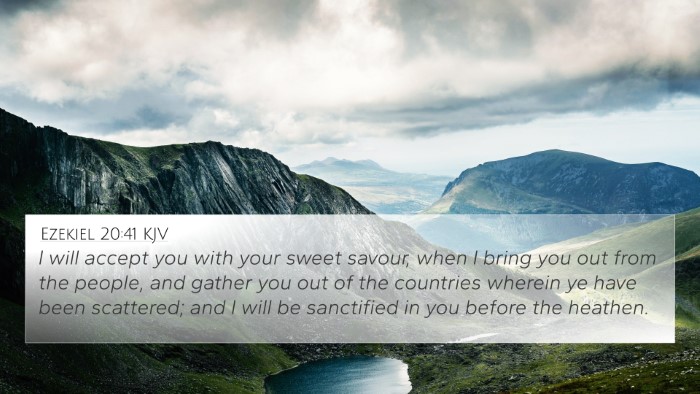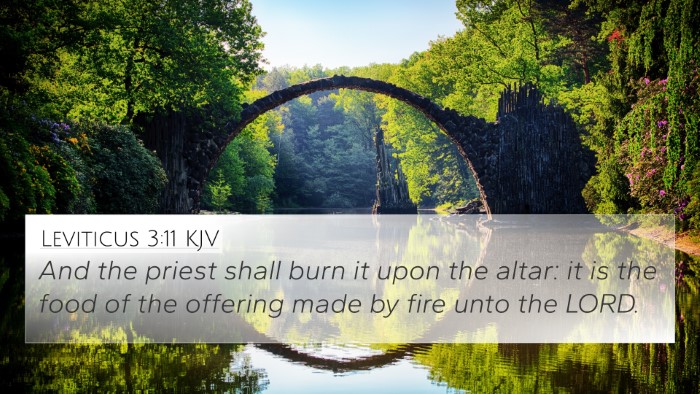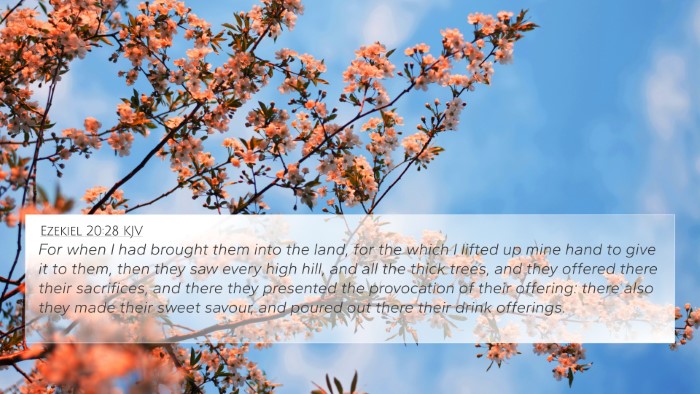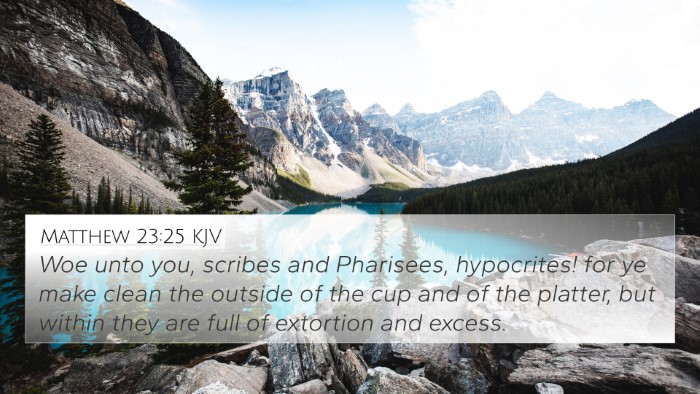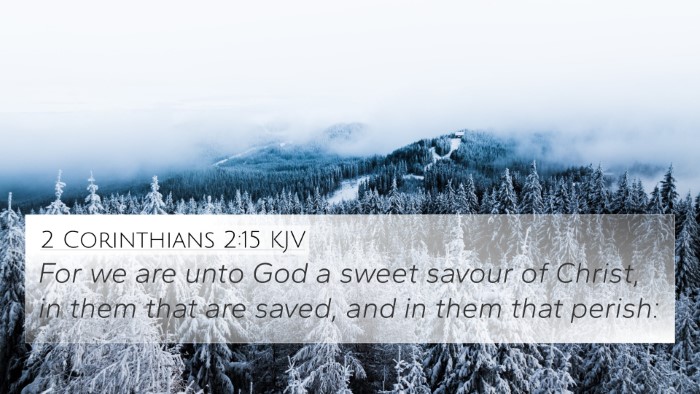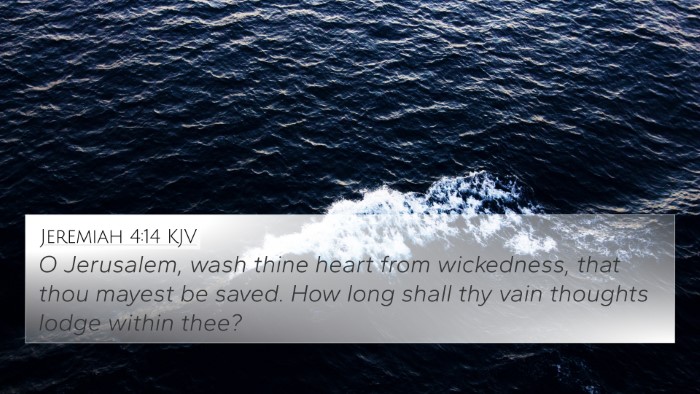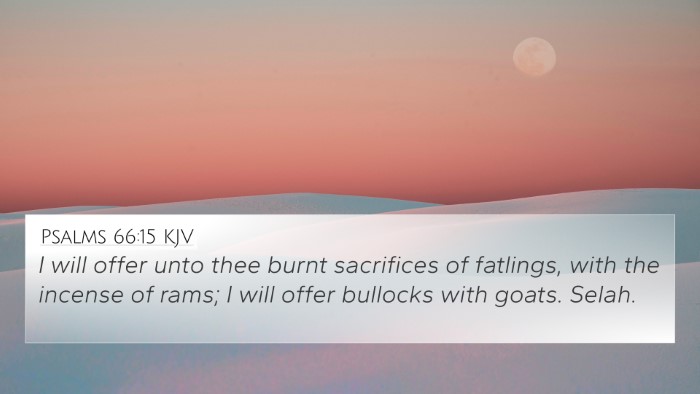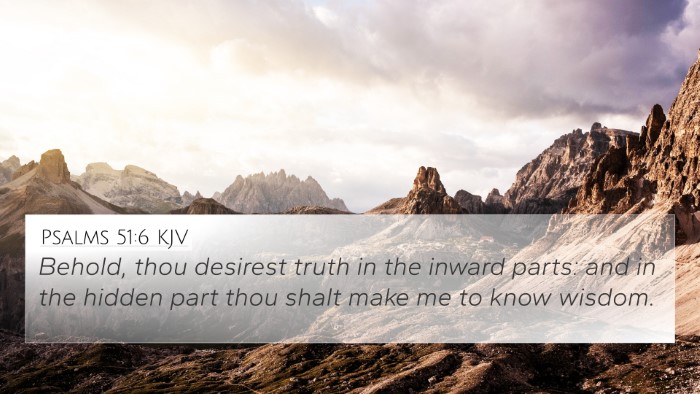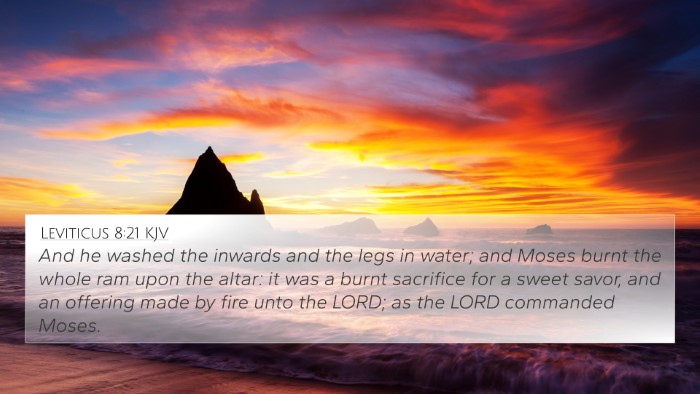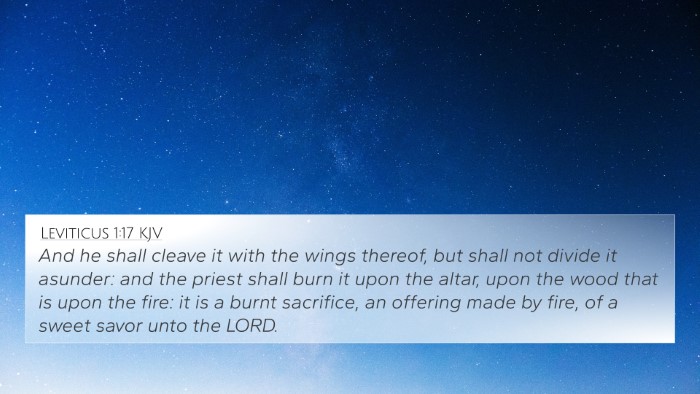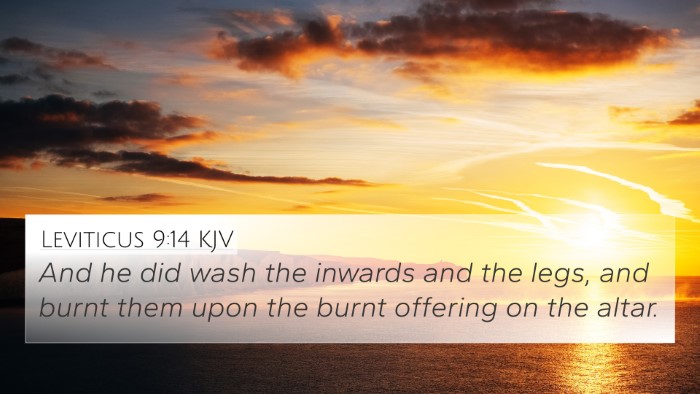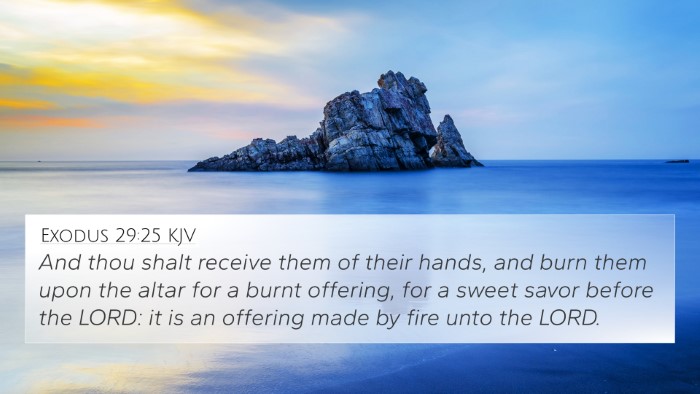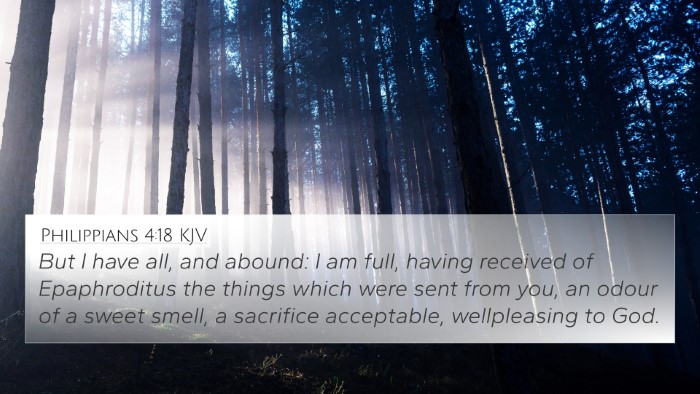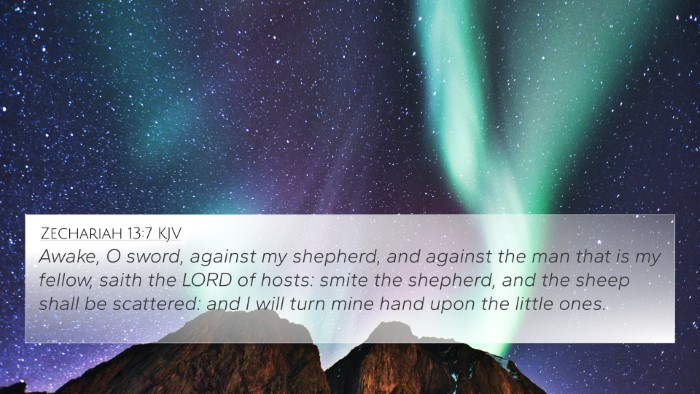Understanding Leviticus 1:9
Leviticus 1:9 states:
“But its entrails and its legs he shall wash with water. And the priest shall burn all of it on the altar as a burnt offering, a food offering with a pleasing aroma to the Lord.”
Summary of Meaning
This verse is part of the instructions given to the Israelites regarding the burnt offerings, a significant component of their sacrificial system. It emphasizes the meticulous preparation and presentation of the offerings to God, symbolizing purity, dedication, and worship.
Commentary Insights
Matthew Henry's Commentary
Matthew Henry points out that this verse reflects the need for purity in the offering process. The washing of the entrails and legs signifies the removal of impurities. Henry explains that the act of washing represented the necessity of purification before approaching God and highlighted the seriousness of presenting an offering to Him.
Albert Barnes' Commentary
Albert Barnes emphasizes the symbolic nature of the burnt offering. He notes that the “pleasing aroma” signifies God's acceptance of the offering. Barnes indicates that this ritual points towards the spiritual principle that true worship must be sincere and cleansed of sin. The entire offering was consumed, underscoring the total surrender and dedication to God.
Adam Clarke's Commentary
Adam Clarke elaborates on the significance of the burnt offering, connecting it to themes of atonement and redemption. He explains that the specific instructions for washing certain parts of the animal indicate God's desire for holiness in worship practices. Clarke sees this as foreshadowing the ultimate sacrifice of Christ, who fulfills the law through perfect obedience.
Thematic Connections
This verse serves as a vital link in the broader theme of sacrifice throughout the Scriptures. Here are some key connections between Bible verses related to Leviticus 1:9:
- Genesis 8:20-21: Noah's offering after the flood is a precursor to the sacrificial system.
- Exodus 29:18: Another instruction for burnt offerings, emphasizing total consumption.
- Leviticus 4:35: Details regarding the atonement sacrifice, linking to purification themes.
- Romans 12:1: Paul encourages believers to present themselves as living sacrifices, representing the New Testament fulfillment of sacrificial themes.
- Hebrews 10:1-4: Discusses the insufficiency of animal sacrifices compared to Christ's ultimate sacrifice.
- Philippians 4:18: Referencing the “pleasing aroma,” linking to how offerings please God.
- 1 Peter 2:5: Believers described as spiritual sacrifices, again emphasizing dedication to God.
Cross-Referencing Biblical Texts
Studying Leviticus 1:9 opens a pathway for deeper exploration into the sacrificial system of the Old Testament and its implications in the New Testament. Below are tools and resources that help in further cross-referencing:
- Use a Bible concordance to identify thematic cross-references.
- Leverage Bible cross-reference guides for detailed connections.
- Engage in cross-reference Bible studies to explore the relationships between verses.
- Implement Bible reference resources available for comprehensive study.
- Utilize the Bible chain references approach to connect related Scriptures.
Inter-Biblical Dialogue
The connections elucidated by Leviticus 1:9 contribute to an inter-Biblical dialogue that furthers our understanding of sacrificial worship. It encourages believers to consider how rituals and laws from the Old Testament inform New Testament practices. This verse calls for a reflective examination of our worship and the sincerity with which we present ourselves before God.
Conclusion
Leviticus 1:9 encapsulates significant theological principles of purity, dedication, and acceptance in worship. By cross-referencing with related scriptures, we can gain a fuller understanding of how this ancient text informs contemporary faith practices. The rich tapestry of biblical connections illustrates the timeless principles of sacrifice and worship that resonate throughout both the Old and New Testaments.
